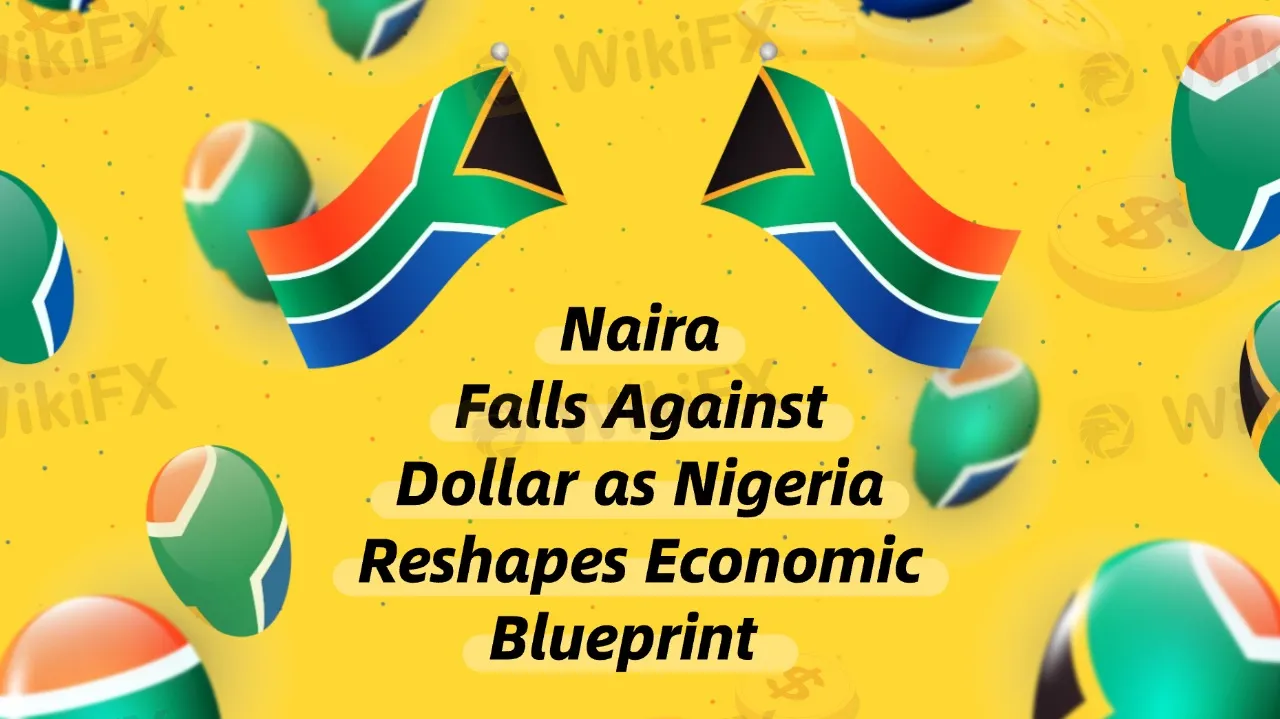简体中文
繁體中文
English
Pусский
日本語
ภาษาไทย
Tiếng Việt
Bahasa Indonesia
Español
हिन्दी
Filippiiniläinen
Français
Deutsch
Português
Türkçe
한국어
العربية
Naira Falls Against Dollar as Nigeria Reshapes Economic Blueprint
Abstract:As Nigeria's foreign exchange reserves gradually decrease, the value of the Naira in the foreign exchange market continues to decline, and the exchange rate of the Naira against the US dollar has been consistently dropping, becoming one of the major challenges facing Nigeria's economy.

In January 2025, Nigeria's foreign exchange reserves fell to $40.29 billion, a 1.4% decrease from $40.883 billion at the beginning of the year. At the same time, the Naira‘s exchange rate in the parallel market has been fluctuating. On January 17, 2025, the street rate reached 1,675 Naira to 1 US dollar, depreciating further from 1,665 Naira the previous day. Despite the Central Bank of Nigeria’s ongoing market interventions, the Naira's depreciation trend remains unchecked.
With the decline in foreign exchange reserves, Nigeria's foreign currency supply has become tight, leading to a shortage in currency supply and pushing the Naira-to-dollar exchange rate even higher. Due to global economic uncertainties and internal resource constraints, Nigeria‘s trade imbalance and fiscal deficit remain pressing issues. Furthermore, the country’s economic structure is relatively narrow, heavily reliant on oil exports, making its economy vulnerable to fluctuations in international oil prices. Therefore, Nigeria urgently needs to optimize and adjust its economic structure.
The National Plan to Reshape the Economic Blueprint
The Nigerian government plans to reshape its economic blueprint through a series of reforms. The government will readjust the country's GDP benchmark to more accurately reflect the current state and potential of the economy. In 2024, the National Bureau of Statistics will adopt 2019 as the new base year. This adjustment will include emerging industries such as the digital economy, modular refineries, and the informal economy, reflecting the diversification of Nigeria's economy. In addition, the government will strengthen tax reforms and optimize tax policies to promote the growth of fiscal revenue and reduce debt risks.
Nigeria also plans to further promote the development of the technology and creative industries to enhance overall economic competitiveness. For example, the government will encourage the development of the digital economy, support tech startups, and facilitate the rise of e-commerce, increasing the contribution of the non-oil sector. Meanwhile, measures will be taken to improve infrastructure and drive the modernization of industries and agriculture, laying a solid foundation for long-term economic growth.
Although this process comes with risks and challenges, its potential positive impact will inject new vitality into Nigerias economic development. With the advancement of these reforms, Nigeria is expected to achieve more diversified and sustainable economic growth, securing a more stable position in the global economy.

Disclaimer:
The views in this article only represent the author's personal views, and do not constitute investment advice on this platform. This platform does not guarantee the accuracy, completeness and timeliness of the information in the article, and will not be liable for any loss caused by the use of or reliance on the information in the article.
Read more

OctaFX Flagged by Malaysian Authorities
OctaFX has been officially listed on warning lists by both Bank Negara Malaysia (BNM) and the Securities Commission Malaysia (SC). These alerts raise serious concerns about the broker’s status and whether it is legally allowed to operate in Malaysia.

TradingPRO: A Closer Look at Its Licences
In an industry where safety and transparency are essential, the regulatory status of online brokers has never been more important. For traders seeking to protect their capital, ensuring that a platform operates under recognised and stringent oversight can make all the difference. Keep reading to learn more about TradingPRO and its licenses.

Oil Price Breakout Incoming? Investors Should Stay Alert
Oil prices are hovering around a critical level, with potential yet to be fully unleashed. Investors must prepare for sudden changes.

New SEBI Regulations on Intraday Trading
The Securities and Exchange Board of India (SEBI) has implemented revised regulations on Intraday trading, with effect from November 20, 2024. These regulations are meant to lessen risks and prevent speculative trading practices.
WikiFX Broker
Latest News
How much money will you earn by investing in Vantage Broker?
IronFX vs Exness Review 2025: Comprehensive Broker Comparison
Fraudsters Are Targeting Interactive Brokers' Users with Lookalike Emails
Everything you need to know about ADSS
SkyLine Guide 2025 Malaysia: 100 Esteemed Judges Successfully Assembled
Vantage Markets Review 2025: Trusted Forex and CFD Trading Since 2009
Top Tips to Choose the Best Forex Broker in 2025
SEBI Notifies New F&O Rules for Investors - New Derivative Trading Limits & More Amendments
Interactive Brokers: Global Office Visits and Licensing Details
U.S. Jobs Data Released: A Potential Boost for Gold Prices
Currency Calculator


